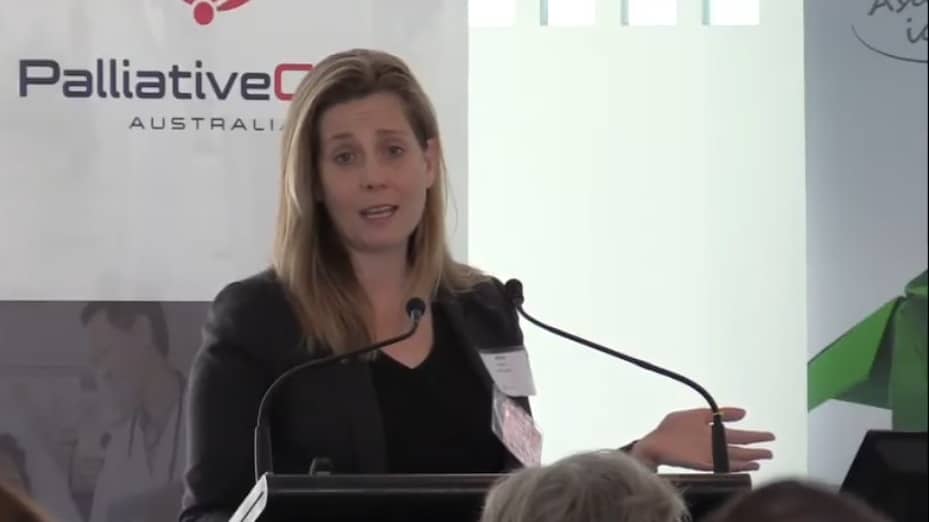Demand for palliative care, models of funding, the need for reform and the data to support reform. Last weeks’ Parliamentary Friends of End of Life Group Lunchbox hosted by Palliative Care Australia heard from a group of speakers well acquainted with the way in which funding models shape service outcomes, how reform can be influenced and what data is needed to create change.
Speakers at the event included Professor Stephen King, Commissioner, Productivity Commission, Professor Stephan Duckett, Health Program Director at Grattan Institute, Professor Mike Woods, Professor UTS Business School Centre for Health Economics Research and Evaluation and Associate Professor Anna Barker, Head of Member Health Innovations at Medibank.
Professor Stephen King spoke about the Productivity Commission’s work in reviewing the provision of palliative and end of life care, in particular at home and in residential aged care settings. He said that future systems will have to meet increased demands and respond to user service preferences, including the desire for people to die at home:
“There is no doubt that community based palliative care costs less than the equivalent hospital based care…many people want to minimise the time they spend in hospital at end of life, they want to die at home, that’s the phrase that tends to be used, but during our enquiries it became obvious that an individual’s preferences about where to die can change as end of life approaches.”
He reminded attendees of the second set of the Productivity Commission’s recommendations that palliative care be regarded as ‘core business’ for residential aged care facilities such that the “quality of end of life care in residential aged care should align with the quality of that care available to other Australians.” In contrast to the ‘12 month’ test for people receiving palliative care in the community Professor King noted that “specific funding for palliative care in residential aged care is often limited to the last week or last few days of life” and that this policy setting was in need of review in order to provide funding, skilled staff and equitable access to palliative care for residents.
Associate Professor Anna Barker, Head of Member Health Innovations at Medibank, spoke about the Medibank Palliative Care at Home trial service that focussed on supporting members in the last 3 months of life at home in the Perth area. Of the members who died in the service 80% died out of hospital. They found that on average the 66 customers who participated in the program received 68 occasions of service and on average 75 hours of service throughout their admission in the trial service. In the last 3 months of life they spent about 1 in 5 days (21% of that period) in hospital. Reflecting on focus of the trial service on the last 3 months of life Associate Professor Barker said “I’d really like to see that increase, I’d like us to see people earlier in that journey to establish those relationships, to get good understandings about their care needs and I’d like to see that move from 3 months to 6 months to 12 months in terms of a holistic care model”.
Watch a summary video of the event or the video of the full event on YouTube.
Pic: Associate Professor Anna Barker speaking at the event


